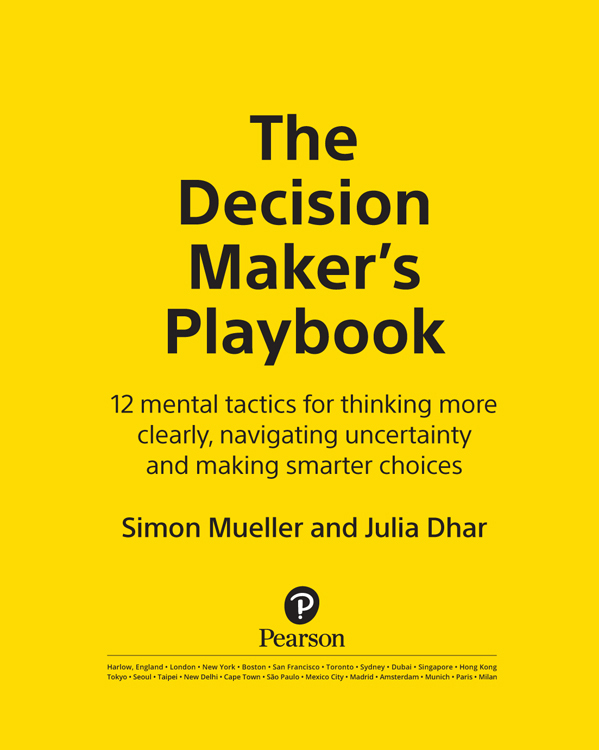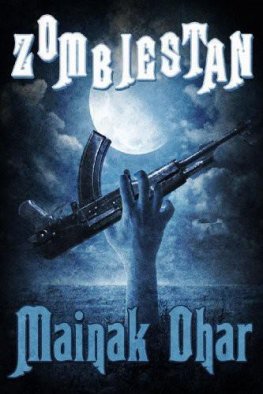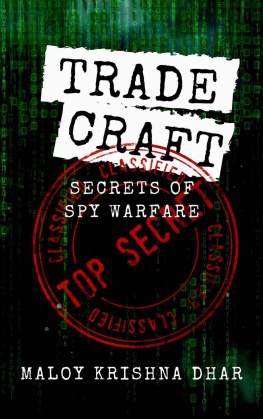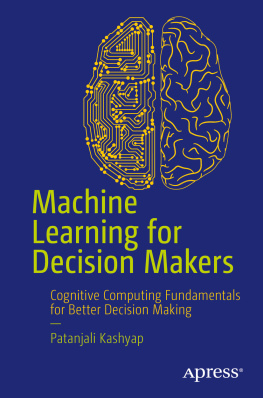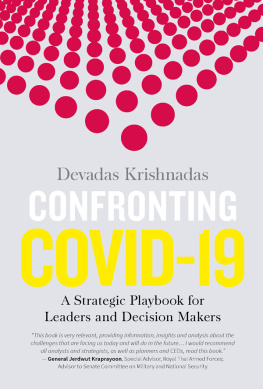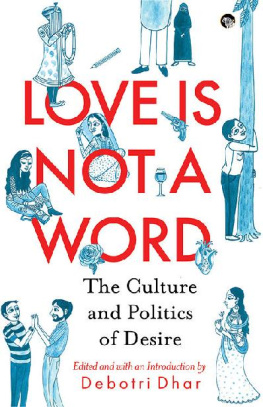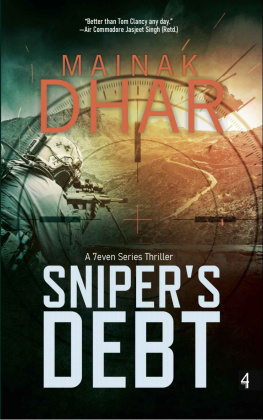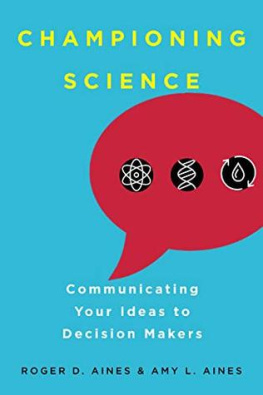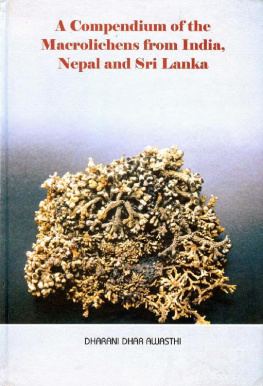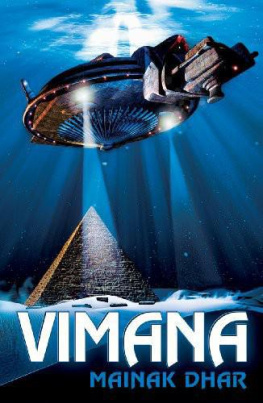Contents
For my family and their unconditional love.
For Peter and his seminal mentorship.
For Anna and her relentless support.
Simon Mueller
For Granny and Jerry, and for Thatha.
Julia Dhar
About the authors
Simon Mueller is a Project Leader at Boston Consulting Group. Previously he served as the General Manager of the BCG Henderson Institute, the firms strategy and macroeconomics think-tank. Simon has advised industrial and technology clients in North & Latin America, Europe and Asia, where he worked extensively on strategic and transformative projects focusing on advanced technologies such as robotics and 3D-printing. Simon is also co-founder of the global non-profit organization The Future Society, which develops governance solutions to ensure safety, fairness and shared prosperity in light of the rise of intelligent/autonomous systems.
Julia Dhar is a Partner at Boston Consulting Group. She co-founded and leads BeSmart, the firms behavioral economics initiative, where she uses her expertise to make organizations more productive, profitable and happier. She has works extensively across the United States, the Middle East and Asia in the public and private sectors. Julia has also held policy and advisory roles in government, including Private Secretary to New Zealands Minister of Finance.
Acknowledgements
This book would not have been published if it werent for the help of many friends and supporters over the course of the five years it took from conception to publication. From framing the idea, selecting the mental tactics that eventually found their way on to the pages, editorial suggestions and critiquing the narrative, we are very grateful for each and every contribution.
In particular, we would like to thank:
Richard Zeckhauser, whose infectious curiosity and intellectual brilliance served as the ignition spark for this project. Jieun Baek and Harry Begg, who helped us avoid some of the pitfalls as first-time authors. The prolific Cass Sunstein for his generous advice. Our editors Eloise Cook, David Crosby and Nicole Eggleton, with their excellent editorial suggestions and their imperturbable patience. Mary Trend for her critical eyes and red pen. Our friends and mentors John-Clark Levin, Craig White, Daichi Ueda, Alexander Goerlach, Johann Harnoss, Ofir Zigelman, Kevin Tan, Ben Hohne, Simon Hedlin-Larsson, Alex Bleier, Martin Guelck, Casper van der Ven, Denise Bailey-Castro, Stefan Woerner, Tom Lovering, Sek-loong Tan, Eric Gastfriend, Ben Scott, Arohi Jain, Christina Endruschat, Josh Cohen, Martin Reeves, Hannes Gurzki, Nico Miailhe, Lucas Ruengeler, Henry Alt-Haaker, Alan Iny, Maik Wehmeyer, Ambrose Gano, Stephan Wittig, Bjoern Lasse Herrmann, Benedikt Herles, Todd Shuster, Charlie Melvoin, Tobi Peyerl, Cyrus Hodes, Friederike von Reden, Nicolas Economou, Pepe Strathoff, Jannik Seger, Paul Chen, Torben Schulz, Eliot Glenn, Todd Elmer, Steffen von Buenau, Daniel Jahn, Elias Altman, David Hecker, Olivia Maurer, Michele Lunati, Iris Braun, Tony Peccatiello, Balthasar Mueller, Greg Manne, Ulrich Atz, Ed Walker, Valerie von der Tann, Beth Macy, Nafise Masoumi, Viola Mueller, Lolita Chuang, Christian Waeltermann, George Lehner and Nina Gussack, Nina Shapiro, Nidhi Sinha, Jonathan Willen, Alex Golden Cuevas, Jan-Peter Boeckstiegel, Patrick Daniel and Mette Moeller Joergensen.
Introduction
Youre in a VUCA world now
Life is a sequence of decisions. Every day, we are faced with hundreds of choices: some small (what to eat for lunch), some substantial (where to live or where to work). The fear of the wrong choice can be debilitating, while the amount of information required to make some choices can be overwhelming. We live in a world of ever-increasing complexity, and what we need is a better game plan better maps of the territory of life, more robust mental models that effectively depict reality and help us make better decisions, faster. We call those maps mental tactics.
The book you are holding offers a selection of proven approaches to problem solving, decision making and implementation. It is for all of you who want to be more effective and efficient in your professional and personal lives. Mental tactics are cognitive shortcuts that help us identify patterns and relationships, avoid common cognitive errors, view the world from different angles, break down complex problems and take action.
The mental tactics portrayed in this book are distilled from various fields of research and practice, including statistics, politics, economics, systems theory, investing, operations research, game theory, medicine, psychology, military intelligence and philosophy. You will find that most mental tactics are applicable well beyond the disciplines in which they originated. Once you internalise them, you can apply them to a broad range of situations, from self-management to team effectiveness, to organisational leadership. They are as applicable to your personal dilemmas as your professional conundrums.
This book will help you to derive insights from data, overcome cognitive flaws, make more rational decisions and identify the fastest and most efficient path to implementation. In this book, we tend to address problems and decisions from an analytical standpoint. We favour simple, systematic approaches, which we illuminate for you through the checklists.
Our goal is to give you tools that are practical and immediately applicable. We wrote this book to share ideas and tools that we believe deserve a wider audience. Using the mental tactics has made a huge difference for the two of us, both in terms of the quality of our decisions and the speed and efficiency of our decision making. We started sharing these techniques with each other, our teams and wider network and this book was born. We know the mental tactics here can help you in the same way and we are excited for this adventure you are about to come on with us. Let us begin!
Modern times
You the people have the power, the power to create machines, the power to create happiness! You the people have the power to make this life free and beautiful, to make this life a wonderful adventure!
Charlie Chaplin
One of the most iconic scenes in the history of film depicts the Little Tramp, played by Charlie Chaplin, fixing products on an assembly line (see above). Over time, Little Tramp himself becomes more and more machine-like, determined to accomplish one thing and one thing only: wrenching screws on gadgets that pass by on a conveyor belt, over and over again.
In an attempt to increase efficiency, the factory supervisor turns a lever to speed up the assembly line. Little Tramp hastens to keep up and grows increasingly more desperate as he races to complete the task against the ever faster tide of work.
Today, we find more and more monotonous labour tasks completed by algorithms or robots. While the industrial environments in Chaplins film focused on controlling every movement of the worker (one scene shows Little Tramp as a guinea pig for a machine that feeds workers so they never have to stop working), todays workplace environment is often quite the opposite. Instead of one single repetitive task, most of us face a new kind of frustration: the overwhelming abundance of information, options and stimulation.
The increasing complexity of work and the break-neck speed at which business is conducted have permeated all aspects of life. Disruptive events happen more and more frequently, while social and digital transformations open up new opportunities for collaboration and action on an unprecedented scale. Were living in what the US Army War College calls a VUCA world Volatile, Uncertain, Complex and Ambiguous.

